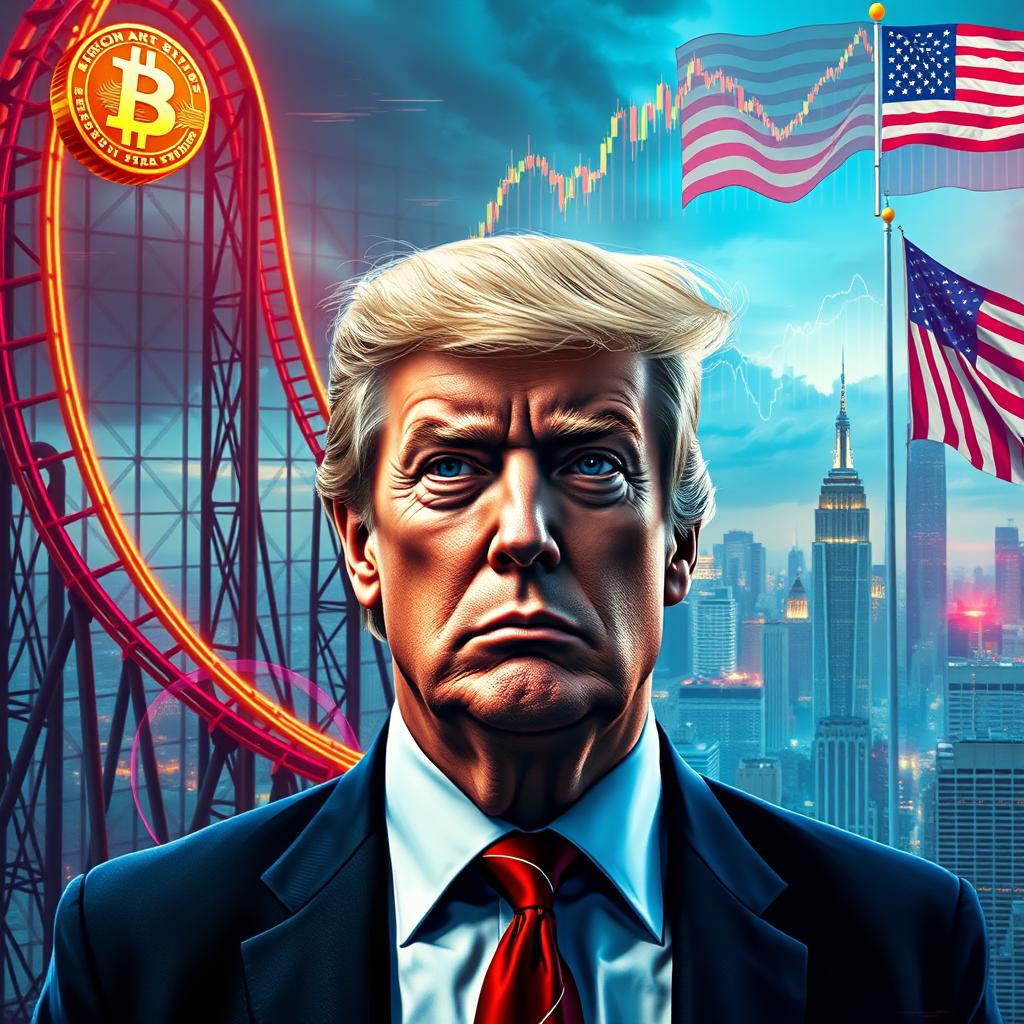Analysis of Crypto Market Reaction to Trump’s Liberation Day
The crypto market has been experiencing a rollercoaster ride in recent days, with Bitcoin and major altcoins initially recovering on April 1, only to dip again ahead of Trump’s Liberation Day. This volatility is largely attributed to the uncertainty surrounding the introduction of reciprocal tariffs, which has led to a resurgence of market anxiety. As of press time, Bitcoin had fallen 1.36% from its April 1 high of $85,413, while major altcoins like Ethereum, XRP, Solana, and Dogecoin saw losses ranging between 3-5%. The global market cap also fell 2.1% to $2.85 trillion, reflecting a risk-off sentiment.
Historically, the crypto market has shown a tendency to decouple from traditional markets during times of economic uncertainty. For instance, during the 2019 tariff standoff, Bitcoin surged nearly 70% as investors sought safe-haven assets. However, the current setup is different, with inflation already running hot and limiting the Federal Reserve’s ability to cut rates aggressively. This could mean that risk assets, including crypto, may not have the same cushion if markets start to wobble.
Crypto analyst Ash Crypto notes that while the setup feels familiar, the key differences this time around could impact the market’s reaction. With inflation already high, the Fed may not be able to cut rates as aggressively, potentially triggering renewed volatility across both crypto and traditional markets. On the other hand, if trade tensions escalate further, Bitcoin could decouple from equities again, potentially leading to a surge in its price.
Predictions and Insights
The crypto market is currently divided, with some analysts predicting a potential push to $110,000 if the Fed eases its monetary policy in response to slowing growth. Former BitMEX CEO Arthur Hayes believes that tariffs won’t stop Bitcoin and might even accelerate its next big move. However, critics like Peter Schiff argue that Liberation Day could expose crypto’s underlying fragility, potentially leading to a tumble below $50,000.
Market analyst Alex Kruger has warned that a hardline tariff policy could trigger a 10-15% crash in the crypto market within days. Given the uncertainty surrounding the introduction of reciprocal tariffs, it’s essential for investors to remain cautious and keep a close eye on market developments.
Some key takeaways from the current market situation include:
- The crypto market is highly volatile, with prices reacting to news and events in real-time.
- The introduction of reciprocal tariffs could lead to a surge in Bitcoin’s price, but it also poses significant risks to the market.
- The Federal Reserve’s ability to cut rates aggressively is limited due to high inflation, which could impact the market’s reaction to economic uncertainty.
- Investors should remain cautious and keep a close eye on market developments, as the situation is highly fluid and subject to change.
In conclusion, the crypto market’s reaction to Trump’s Liberation Day is a complex and multifaceted issue, with various analysts and experts offering differing predictions and insights. While some believe that Bitcoin could thrive in the current environment, others are more cautious, warning of potential risks and volatility. As the situation continues to unfold, it’s essential for investors to stay informed and adapt to changing market conditions.
Key Statistics:
- Bitcoin’s price fell 1.36% from its April 1 high of $85,413.
- Major altcoins like Ethereum, XRP, Solana, and Dogecoin saw losses ranging between 3-5%.
- The global market cap fell 2.1% to $2.85 trillion.
- Inflation is already running hot, limiting the Federal Reserve’s ability to cut rates aggressively.
- The 2019 tariff standoff saw Bitcoin surge nearly 70% as investors sought safe-haven assets.
Events to Watch:
- The introduction of reciprocal tariffs on April 2, 2025.
- The Federal Reserve’s monetary policy decisions in response to slowing growth.
- The reaction of traditional markets, including the S&P 500 and Russell 2000, to the introduction of reciprocal tariffs.
- The potential for Bitcoin to decouple from equities and surge in price if trade tensions escalate further.




